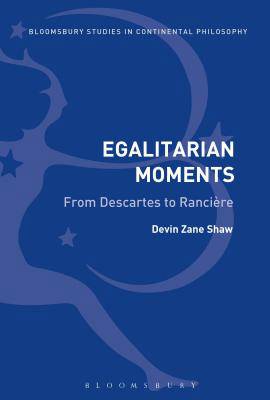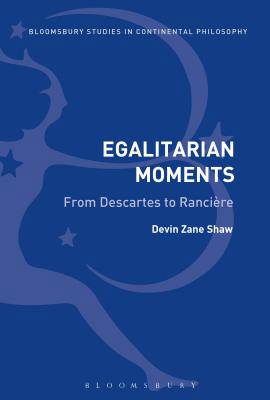
- Retrait gratuit dans votre magasin Club
- 7.000.000 titres dans notre catalogue
- Payer en toute sécurité
- Toujours un magasin près de chez vous
- Retrait gratuit dans votre magasin Club
- 7.000.0000 titres dans notre catalogue
- Payer en toute sécurité
- Toujours un magasin près de chez vous
Description
Jacques Rancière's work has challenged many of the assumptions of contemporary continental philosophy by placing equality at the forefront of emancipatory political thought and aesthetics. Drawing on the claim that egalitarian politics persistently appropriates elements from political philosophy to engage new forms of dissensus, Devin Zane Shaw argues that Rancière's work also provides an opportunity to reconsider modern philosophy and aesthetics in light of the question of equality. In Part I, Shaw examines Rancière's philosophical debts to the 'good sense' of Cartesian egalitarianism and the existentialist critique of identity. In Part II, he outlines Rancière's critical analyses of Walter Benjamin and Clement Greenberg and offers a reinterpretation of Rancière's debate with Alain Badiou in light of the philosophical differences between Schiller and Schelling.
From engaging debates about political subjectivity from Descartes to Sartre, to delineating the egalitarian stakes in aesthetics and the philosophy of art from Schiller to Badiou, this book presents a concise tour through a series of egalitarian moments found within the histories of modern philosophy and aesthetics.Spécifications
Parties prenantes
- Auteur(s) :
- Editeur:
Contenu
- Nombre de pages :
- 224
- Langue:
- Anglais
- Collection :
Caractéristiques
- EAN:
- 9781350037878
- Date de parution :
- 18-05-17
- Format:
- Livre broché
- Format numérique:
- Trade paperback (VS)
- Dimensions :
- 156 mm x 234 mm
- Poids :
- 317 g

Les avis
Nous publions uniquement les avis qui respectent les conditions requises. Consultez nos conditions pour les avis.






